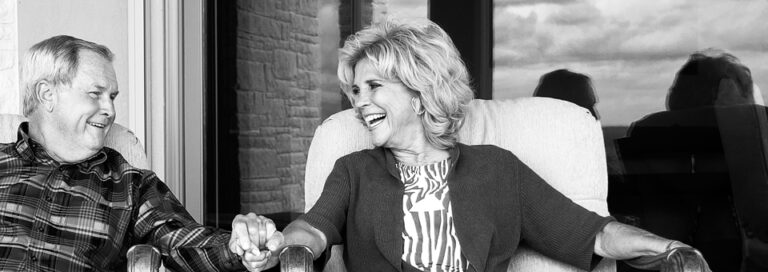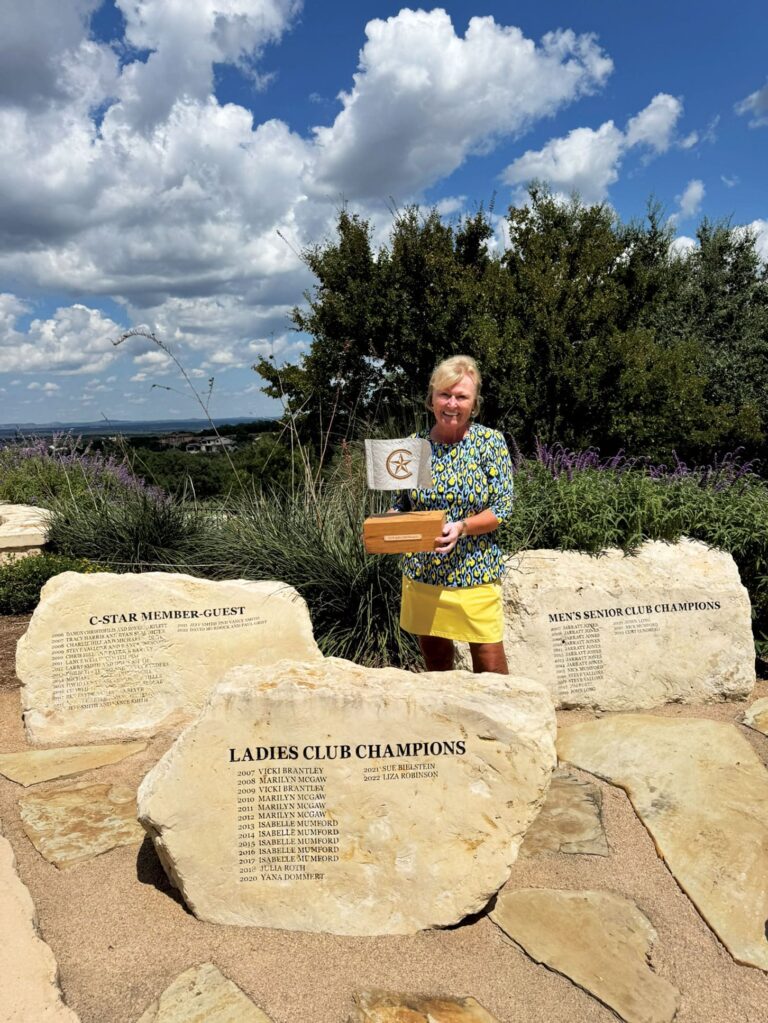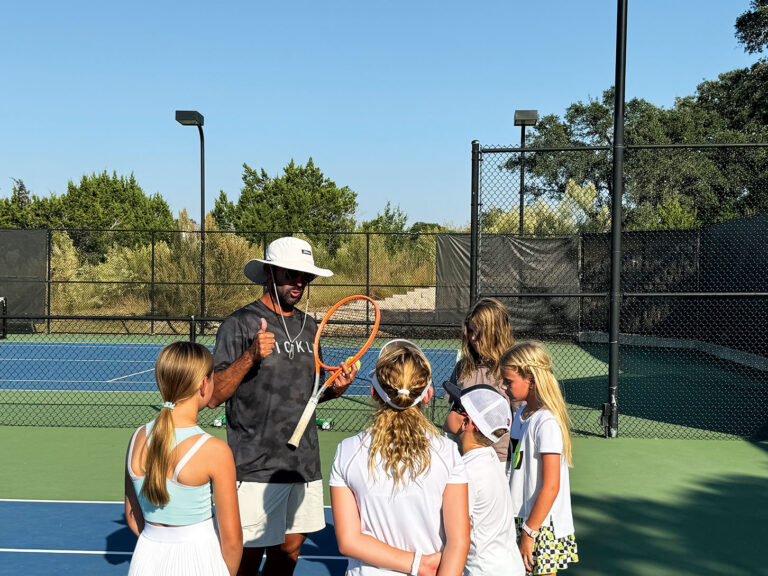There’s something to say about the things we cling to as children, and Karen Hunke is proof. “I loved the trees. I loved the flowers. But most of all, I loved the animals,” she says reflecting on her childhood. Growing up in the panhandle of Texas, Karen fed her interest by spending time at friends’ ranches, so it’s no surprise that Karen and husband Phil are now celebrated land stewards in the state of Texas, as well as notable for their efforts in nature conservation.
Nature was always a passion for Karen, but Phil had much different aspirations that began surfacing at an exceptionally young age. “When I was in the 6th grade, I wrote my career paper and I wrote it about being a surgeon. So I made up my mind pretty early that I was going to be a surgeon of some kind,” Phil remembers. With a love for children, Phil thought it fitting to look into becoming a pediatrician. Once being exposed to the sick children, Phil realized that he did not like seeing the kids suffering, and settled on the milder practice of pediatric dentistry.
With a degree from Texas Tech, Karen made the opportune move to Dallas to teach, where she later received her Master’s degree from Southern Methodist University. As a SMU graduate himself, Phil headed straight into Baylor College of Dentistry, before finishing his residency at Children’s Medical Center in Pediatric Dentistry. Just as Phil was completing his residency, a friend had arranged for him to meet Karen, who he believed would be a good fit for Phil. “It was love at first sight,” Phil says without hesitation. Evidently it was, as the pair wed less than six months later in 1974. “I think we were ready. We were both older, we were not young pups. We were both really ready, and when you find that person, you’re there and that’s it,” Phil avows.
Having spent his life in Dallas, it was never in the cards for Phil to leave, until one trip changed the whole deck. “We ended up going down for a visit to Brownsville, and we just went, ‘Wow! This is where we’re supposed to live!’” Karen exclaims. Phil had been going to The Valley for several years, so he was familiar with the area and knew several people. “I love to hunt and fish, so it a fabulous opportunity for me because that’s the ranching country,” Phil interjects. “We just up and changed all the plans and moved to The Valley. We started out in Harlingen for 9 months with a friend in his practice then went to McAllen and Phil set up his own practice there.” The move rewarded Phil with abounding opportunities to help the children who had influenced his career. “The Valley provided very special opportunities because there are so many needy kids, and so much pathology. I had the privilege of having a lot of kids referred to me.”
Phil was not the only one experiencing the great benefits of their relocation. Karen had the opportunity to work at the Gladys Porter Zoo, known for its triumphs in breeding endangered species of wildlife. She utilized her background of teaching during her time at the zoo. She explains, “I was on their board for a long time and did a lot of work for them by doing programs and showing slides and giving people tours. In doing so, I learned a lot about the animal collection.” And the animals learned a l

ot about her. So much so, that the gorillas began recognizing her on sight. “When I go back, they put their hand up and I put my hand up. They’re amazing animals. It wasn’t just gorillas; it was a lot of animals. And the people that work with them are fascinating people that don’t make much money, but they do it because of how much they love doing what they do. To me, that’s a blessing.”
At once, the Hunke’s were on the hunt for a ranch to call their own. “I always thought it would be a real privilege to own land. To walk out or drive out into the fields, and say ‘this is mine’,” Phil expresses. They decided that they would know the right one when they found it, and six years later it happened. The ranch that finally won them over had been owned by the same family since the 1930’s. Due to generational clashes, the first generation decided to sell it to an outside party, much to Karen and Phil’s advantage. Over the course of seven years, they bought four ranches that were contiguous to each other to comprise what is now known as El Tecolote Ranch. “We put four ranches back together that hadn’t been together since the king of Spain owned the land; before Texas and the United States were established. And what we had the privilege of doing is putting land back together,” Phil states.
Located between the King Ranch, the Corbett Ranch, and the East Ranch, its location is one of the ranch’s most outstanding features. Karen’s affinity for wildlife harmonized with the ranch’s surroundings. “South Texas is wild still and there are incredible animals and birds that live there that don’t live anywhere else,” she explains. A statement supported by how the ranch got its name in the first place. “Phil was visiting with the man that took us out to see it and I just walked off down a little road. There was a stump and there was a Great Horned Owl sitting on that stump. I walked right by it and I couldn’t believe that it didn’t fly away. It just stared at me. I thought, ‘this is one of my ancestors telling me this is the place.’ So we named it El Tecolote which means the Great Horned Owl in Spanish.” This sighting would prove to be a foreshadowing of the Hunke’s future with El Tecolote.
Shortly thereafter, Karen and Phil began doing research to discover what kind of animals and plants could be found on their land. In the process, they found another owl called the Ferruginous Pygmy Owl. Phil begins, “It was in the process of being put on the endangered species list of the United States fish and wildlife. After 19 years of doing research on it, we were able to keep that owl off the endangered list and have continued the research. We knew we had something special.” Karen interjects, “It wasn’t just because of the research that we did, but we always allowed young people to come in and do research. Whether they were working on the leopard frog or inland pond fishes, we always allowed them to come in because we felt very honored to own this piece of land and that we needed to share it.” As a result of their efforts as ranch owners, Karen was asked to be on the Caesar Kleberg Wildlife Research Institute out of Kingsville; one of the nation’s most prestigious wildlife research institutes. She was the only woman on the Board for a span of 15 years, until just recently.
Owls were not alone on that list; they were followed by Ocelot and Jaguarondi, both endangered species. “The Nature Conservancy came to the ranch and did an inventory for a few days and found endangered cats and plants. They called it a critical wildlife corridor,” Phil says. “Just this year, we sold part of our ranch to the Nature Conservancy. That puts it in conservation for perpetuity. They partnered with the U.S. Fish and Wildlife, so they are now our south neighbor. We have that part, which is a little less than 30%, of the ranch that is now in conservation forever. That’s when we were given the recognition of Land Steward of the Year, which was very big to us.”
Karen and Phil have received ample recognition in the nature conservation community, which they are grateful for, but their endeavors are for a much larger purpose than that. “This world is growing so fast and the population is expanding everywhere, all over the world,” Karen says. “We’re not going to have wild places anymore unless we protect them. This was our fourth trip to Africa, and we found that people were so intent on killing animals. I’m talking about the local population, not for trophy hunting but for food or poaching. Finally, through education so many of these people have realized that these animals are worth more to them alive than they are dead. When tourists come in to see these animals that you can’t see any other place in the word, it brings in money to their communities to educate their children, to have hospitals. They’re protecting these animals now. We have to understand that in the United States too. I want there to always be wild places for my great great great grandchildren.” Phil agrees, “You can be a conservationist and not be a tree hugger. In fact, it’s the people who really do the most for conservation that are the ones making commitments to owning land, funding projects, and funding education. You never change Mother Nature, but you can try to enhance it. It’s taking something from scratch, and building it, but always appreciating what Mother Nature had in place. It’s not our land, it belongs to our supreme being; we just have it for a short time.”
After 18 years of operating El Tecolote, the younger of their two daughters suggested that the two visit Cordillera Ranch. Intent on never leaving their ranch in The Valley, Karen and Phil were resistant, but eventually gave in. “We came and visited and were just blown away by this place. I think as is everyone that comes to see it. We waited around for this particular lot, for about two years,” Karen recollects. A dentist that had worked for Phil for 18 years took over the practice when he announced his retirement, making for a smooth transition. “The big challenge was leaving down there, being here and giving that up, and knowing that we needed to have people working there and trusting them,” Phil says. Around the same time, Phil had helped an insurance company get a contract for the State of Texas to manage care for Texas Medicaid and CHIP children. The company asked Phil to be the president of the company, which would be located in Austin. With their lot already bought at Cordillera, he negotiated with the company to be located closer to Boerne. “So they agreed to do that, and now we have an insurance company where we take care of about 1.4 million children in the state of Texas. I am involved with that pretty much on a daily basis, traveling all over the United States, working with state political leaders. I’ve always been there to take good care of the kids.”
Since moving three years ago, the Hunke’s have found that what they love about The Valley is the primary focal point of Cordillera. Phil explains, “Cordillera is an example of how to build and keep the environment pretty close to the same as it is. This is not a subdivision; this is not a routine place of living. The developers and owners have done an excellent job. This is set into nature, and they’ve really respected it and I think that’s really something that makes Cordillera.” Their new neighbors were an integral part of the making the big move easier as well. “I am amazed at the friendliness of everybody. Nobody here brags about what they’ve done. It’s a new life; they’re here to make new friends, and to have an enjoyable time. The quality of life here, you can’t beat it! There is a club or a study group for everybody here. I’ve gotten involved with the Nature Club and that’s been fun,” Karen says. Outside of the Nature Club, Karen and Phil also participate in the Book Club and Wine Club. The couple is also very active with Boerne Performing Arts and the Cibolo Nature Center.
The two stay active in and out of the community, proving that they are anything but retired. “There’s a lot of people here that retired, but they really didn’t retire, because they’re enjoying life so much and they still have got things to give,” Phil admits. For now, they are focused on accomplishing the goals on their bucket list. “We wanted to take our daughters and grandkids to Africa, and we accomplished that in July,” Karen says with a smile. “I don’t want to say it in writing that we’ve done enough traveling, because I would imagine that we will continue to do a little bit of traveling. Things are so good here, you hate to leave.”






